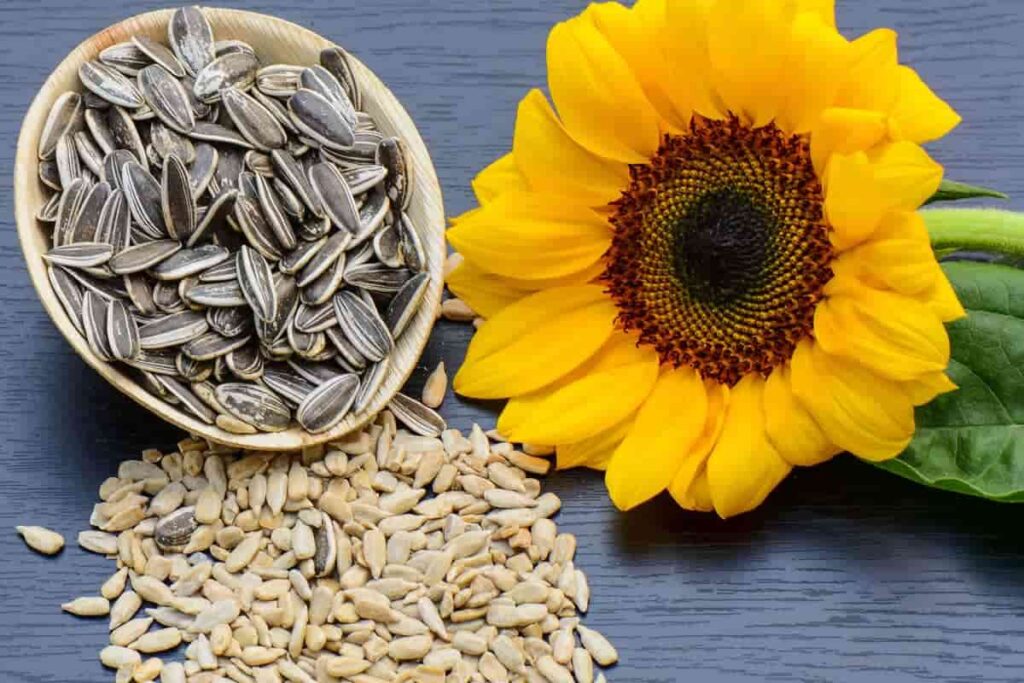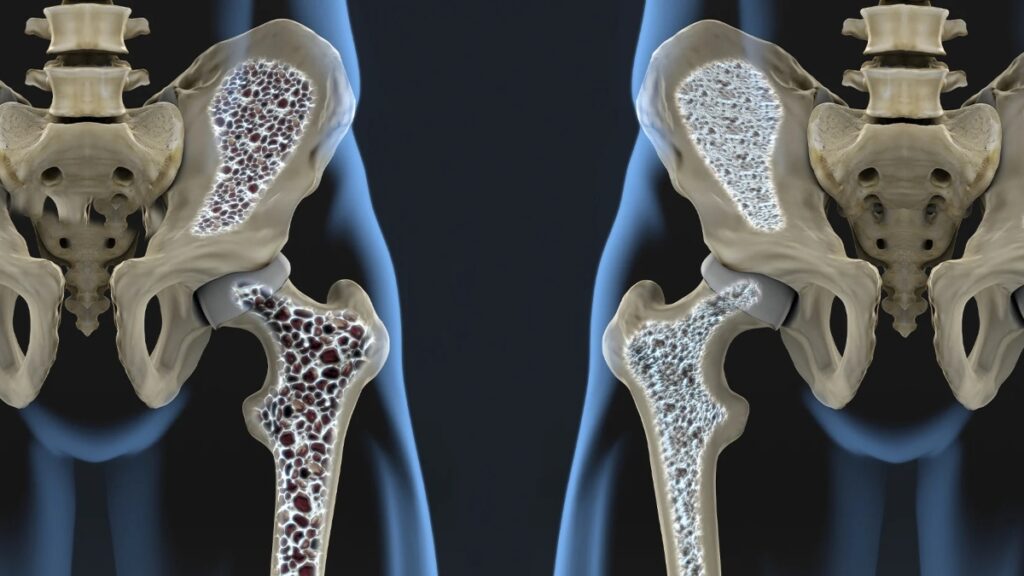Sunflower seeds are more than just a popular snack; they are a powerhouse of nutrients and offer numerous health benefits. Derived from the sunflower plant (Helianthus annuus), these seeds are rich in healthy fats, protein, vitamins, and minerals. Whether consumed raw, roasted, or as part of various dishes, sunflower seeds can significantly contribute to a healthy diet. This article delves into the 10 detailed health benefits of sunflower seeds, explaining how they support various aspects of health and wellness. Without further wasting time, let’s dive deep into this to know all the amazing benefits of sunflower seeds.

Nutritional Profile of Sunflower Seeds
Before exploring the benefits of sunflower seeds, it’s essential to understand the nutritional composition of sunflower seeds. A 1-ounce (28-gram) serving of hulled sunflower seeds contains approximately:
- Calories: 163
- Protein: 5.5 grams
- Fat: 14 grams (mostly unsaturated fats)
- Carbohydrates: 6.5 grams
- Fiber: 3 grams
- Vitamin E: 37% of the Daily Value (DV)
- Magnesium: 9% of the DV
- Selenium: 32% of the DV
- Copper: 26% of the DV
- Thiamine: 7% of the DV
- Phosphorus: 20% of the DV
- Folate: 17% of the DV
Therefore, you can realise how nutritious sunflower seeds are! Now, let’s know about the health benefits that this seed provides.
Also Read: Benefits of Chia Seeds: Uncovering the Surprising Health Benefits
Rich Source of Antioxidants
Sunflower seeds are packed with antioxidants, which are compounds that help protect the body from oxidative stress and inflammation. Actually, sunflower seeds are one of the best natural sources of vitamin E, a powerful antioxidant. Vitamin E helps neutralize free radicals, preventing them from causing cellular damage. This protection is crucial for reducing the risk of chronic diseases such as heart disease, cancer, and neurodegenerative disorders.
Selenium is another antioxidant found in sunflower seeds. It plays a vital role in DNA repair and the prevention of cellular damage caused by free radicals. Adequate selenium intake is linked to a lower risk of chronic diseases, including certain types of cancer. It’s thus one of the best health benefits of sunflower seeds.
Promote Heart Health
Sunflower seeds promote heart health through various mechanisms, thanks to their rich nutrient profile. Firstly, sunflower seeds are high in polyunsaturated and monounsaturated fats, which are beneficial for heart health. These fats help reduce levels of LDL (bad) cholesterol and increase HDL (good) cholesterol, thus lowering the risk of heart disease.

Secondly, magnesium, abundant in sunflower seeds, is essential for maintaining a healthy heart. It helps regulate blood pressure, supports muscle function, and contributes to the maintenance of normal heart rhythms. Adequate magnesium intake is associated with a lower risk of hypertension and heart disease.
Thirdly, sunflower seeds contain phytosterols, plant compounds that help lower cholesterol levels. Phytosterols compete with cholesterol for absorption in the digestive system, thus reducing overall cholesterol levels in the body. These are all the
Support Healthy Blood Sugar Levels
Regulating blood sugar levels is one of the most amazing health benefits of sunflower seeds. This makes these seeds beneficial for individuals with diabetes or those at risk of developing the condition. Sunflower seeds have a low glycemic index, meaning they cause a slow and steady rise in blood sugar levels rather than sharp spikes. This property makes them an ideal snack for maintaining stable blood sugar levels.

Moreover, the high fiber content in sunflower seeds slows down the absorption of sugar into the bloodstream, helping to regulate blood sugar levels. Fiber also promotes satiety, which can prevent overeating and help with weight management.
As we already know, sunflower seeds are rich in magnesium which plays a critical role in insulin sensitivity and glucose metabolism. Studies have shown that higher magnesium intake is associated with a reduced risk of type 2 diabetes.
Maintains Healthy Skin
The nutrients in sunflower seeds contribute significantly to skin health, helping to maintain a youthful and radiant appearance. Vitamin E in sunflower seeds helps protect the skin from oxidative damage caused by UV rays and environmental pollutants. It also supports skin repair and regeneration, helping to maintain smooth and healthy skin.
The healthy fats in sunflower seeds, particularly linoleic acid, help maintain the skin’s natural barrier, keeping it hydrated and reducing inflammation. These fats are crucial for preventing dryness and maintaining a supple complexion. All of this makes it another one of the most excellent benefits of sunflower seeds.
Boost Immune Function
Sunflower seeds can boost the immune system, helping the body fend off infections and illnesses. Zinc is a critical mineral for immune function, and sunflower seeds provide a good amount of it. Zinc helps in the development and function of immune cells, enhances wound healing, and has antioxidant properties. As mentioned earlier, selenium is essential for the immune system. It enhances the production of white blood cells and helps the body respond to infections more effectively.
Support Bone Health
Sunflower seeds contribute to bone health due to their rich content of minerals and vitamins essential for bone maintenance and development. It is certainly one of the greatest benefits of sunflower seeds.

Magnesium is vital for bone health as it helps in the formation of bone tissue and the absorption of calcium into the bones. Adequate magnesium levels are linked to higher bone density and a lower risk of osteoporosis. Furthermore, phosphorus, found abundantly in sunflower seeds, is another crucial mineral for maintaining healthy bones and teeth. It works in tandem with calcium to build strong bones.
Anti-Inflammatory Properties
Chronic inflammation is a precursor to many diseases, including heart disease, diabetes, and cancer. Sunflower seeds have anti-inflammatory properties that help reduce the risk of these conditions. This makes it one of the most outstanding benefits of sunflower seeds.
The antioxidant properties of vitamin E and selenium help combat inflammation by neutralizing free radicals. This reduces the risk of chronic inflammatory diseases. In addition, the polyunsaturated fats in sunflower seeds, particularly omega-6 fatty acids, have anti-inflammatory effects that can help reduce inflammation in the body when consumed in moderation and balanced with omega-3 fatty acids.
Maintains Mental Health and Cognitive Function
Sunflower seeds can also benefit mental health and cognitive function through their nutrient content. Magnesium plays a role in brain function and mood regulation. Low magnesium levels have been linked to an increased risk of depression and anxiety. Consuming magnesium-rich foods like sunflower seeds can support mental well-being.
Moreover, sunflower seeds contain tryptophan, an amino acid that the body converts into serotonin, a neurotransmitter that helps regulate mood. Higher serotonin levels are associated with improved mood and reduced symptoms of depression.
Aid in Weight Management
Despite being energy-dense, sunflower seeds can actually aid in weight management due to their nutrient profile. The combination of protein and fiber in sunflower seeds promotes satiety, helping to reduce overall calorie intake by making you feel fuller for longer. This can aid in weight loss or maintenance efforts, making it one of the best health benefits of sunflower seeds.

As a nutrient-dense snack, sunflower seeds provide essential nutrients without the added sugars and unhealthy fats found in many processed snacks. They can be a healthy addition to a balanced diet, helping to control hunger and prevent overeating.
Improves Digestive Health
Sunflower seeds can also support digestive health due to their fiber content. Fiber is crucial for healthy digestion, and sunflower seeds are a good source of both soluble and insoluble fiber. Soluble fiber helps regulate blood sugar levels and lower cholesterol, while insoluble fiber adds bulk to stool and promotes regular bowel movements, preventing constipation.
Also Read: Benefits of Flaxseed: It is a Super-food! (Here’s Why?!)
Conclusion
Therefore, as you can see, sunflower seeds are a versatile and nutritious addition to any diet, offering a wide range of health benefits. From supporting heart health and regulating blood sugar levels to enhancing skin health and boosting the immune system, the nutrients in sunflower seeds play a vital role in maintaining overall well-being. Including sunflower seeds in your daily diet, whether as a snack or an ingredient in various dishes, can help you reap these awesome health benefits of sunflower seeds. As with any food, moderation is key, so enjoy sunflower seeds as part of a balanced and varied diet to maximize their positive impact on your health. Hopefully, you found this article helpful enough. If you really did let us know your valuable thoughts in the comment section below. Thanks for visiting and appreciating our work.
